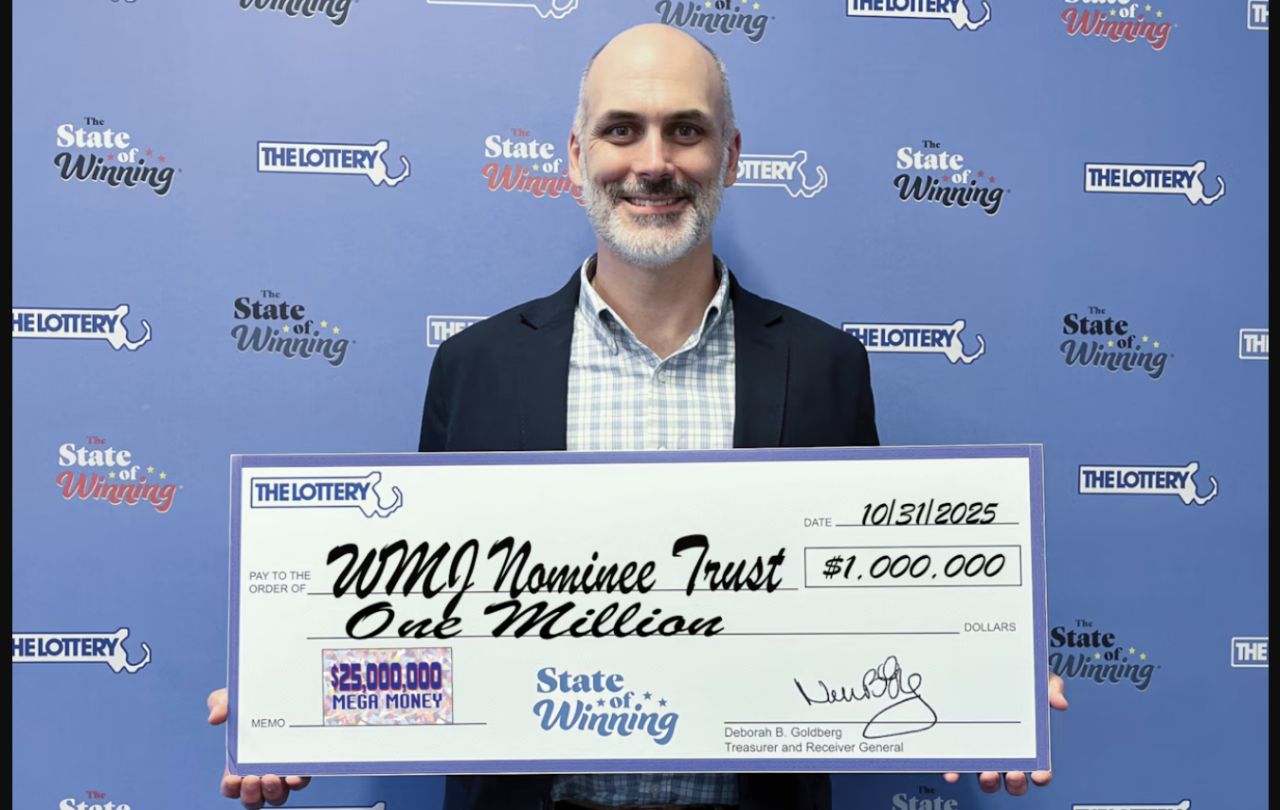A $1 million lottery prize was claimed in Massachusetts last October — but the winner’s name hasn’t hit the headlines yet. That’s because, while the state doesn’t technically allow winners to stay anonymous, there’s a legal workaround that can keep the spotlight off the individual.
How anonymity works in Massachusetts:
-
Winners can set up a trust to claim the prize.
-
The trustee handles the ticket, collects the money, and deposits it for the beneficiary.
-
The trustee’s identity is public, but the actual winner can remain behind the scenes.
On Oct. 31, the WMJ Nominee Trust of Greenfield claimed the $1 million prize from the instant game “$25,000,000 Mega Money.” Represented by trustee George Goodridge, the trust chose a one-time payout of $650,000 before taxes. The winning ticket came from the Sunderland Shell at 668 Amherst Road, which also received a $10,000 bonus for selling the ticket.
That day, Massachusetts saw at least 560 prizes of $600 or more claimed, showing just how active the lottery can get. The state publishes daily lists of winners, though only for prizes over $600.
In recent years, more winners are turning to trusts or other legal entities. Mark William Bracken, Executive Director of the Massachusetts State Lottery, explained:
“Prizes can be claimed by a trust or other legal entities that fulfill the definition of a legal person. The identity of the trustee or legal representative is made public. Over the last several years, we have seen an increase in the number of large prizes claimed by trusts.”
Staying anonymous isn’t just about privacy—it’s about safety. According to Baker Law Group, lottery winners often get bombarded with calls and requests for money once their name and photo are out in the public. But they also warn about taking too long:
-
Sign your ticket carefully before creating a trust. Leave space to add trustees or the trust’s name.
-
Don’t wait too long—an unsigned ticket could be claimed by someone else.
Even when using a trust, winners aren’t completely invisible. Lottery officials verify everyone involved with state agencies, checking for:
-
Child support obligations
-
Taxes owed
-
Tuition or fees at state colleges
-
MassHealth payments
Any debts owed to the state are deducted from the winnings.
For context, the two biggest Massachusetts lottery prizes in 2025 so far have each been $15 million—one from a “Diamond Deluxe” scratch ticket in Holyoke and another from a “300X” scratch ticket on Cape Cod.

Login